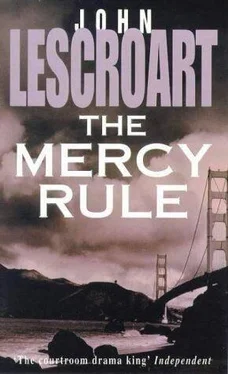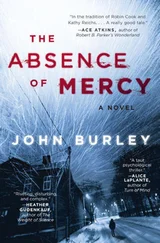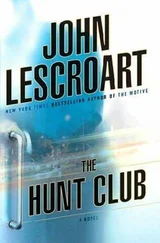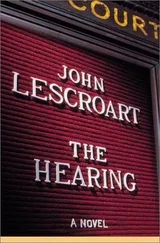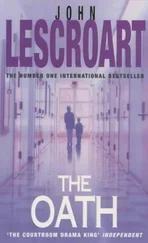John Lescroart - The Mercy Rule
Здесь есть возможность читать онлайн «John Lescroart - The Mercy Rule» весь текст электронной книги совершенно бесплатно (целиком полную версию без сокращений). В некоторых случаях можно слушать аудио, скачать через торрент в формате fb2 и присутствует краткое содержание. Жанр: Триллер, на английском языке. Описание произведения, (предисловие) а так же отзывы посетителей доступны на портале библиотеки ЛибКат.
- Название:The Mercy Rule
- Автор:
- Жанр:
- Год:неизвестен
- ISBN:нет данных
- Рейтинг книги:5 / 5. Голосов: 1
-
Избранное:Добавить в избранное
- Отзывы:
-
Ваша оценка:
- 100
- 1
- 2
- 3
- 4
- 5
The Mercy Rule: краткое содержание, описание и аннотация
Предлагаем к чтению аннотацию, описание, краткое содержание или предисловие (зависит от того, что написал сам автор книги «The Mercy Rule»). Если вы не нашли необходимую информацию о книге — напишите в комментариях, мы постараемся отыскать её.
The Mercy Rule — читать онлайн бесплатно полную книгу (весь текст) целиком
Ниже представлен текст книги, разбитый по страницам. Система сохранения места последней прочитанной страницы, позволяет с удобством читать онлайн бесплатно книгу «The Mercy Rule», без необходимости каждый раз заново искать на чём Вы остановились. Поставьте закладку, и сможете в любой момент перейти на страницу, на которой закончили чтение.
Интервал:
Закладка:
‘The attorney’s thinking it’s impossible the fire could spread. The place is rigged so it could never burn up. There’s backup systems on the backup systems, but maybe he didn’t figure on the grease in the kitchen, maybe it got too hot too fast… anyway, whatever, the place goes up.
‘But a guy dies. A fireman, by mistake. Sweet-faced young guy, two little kids, pretty wife.
‘There’s no evidence of arson. It looks like one of the pilot lights caught some grease that had dripped down. One of the service staff must have left an apron near the stove. And, not that anybody’s really asking, but the two friends alibi each other. They weren’t anywhere near there all night. They were out under the bridge, knocking down the halibut. They got a boatload of fish to prove it.’
Giotti was leaning back in his oversized chair, his hands crossed over his middle. He sighed wearily. ‘Let’s say something like that happened, counselor. You going to try and take that to trial?’
Hardy was too wired for any games. Although he knew Giotti was absolutely correct: there was no evidence here anymore. Murder might have no statute of limitations, but to convict you still needed more than he’d ever be able to produce.
Any physical evidence of the fire was long gone. Sal’s rock-solid alibi, and Giotti’s, went that way to the grave with him. Joan Singleterry was dead. Even the insurance company’s investigators had found no wrongdoing. There was no chance. No police department would waste a minute on it.
But there was more Hardy felt he needed to know. ‘How do you think somebody like Sal could have gotten ahold of fifty thousand dollars in cash?’
‘In this scenario it could have been part of the insurance money.’
‘A payoff, you mean, to keep quiet.’
‘A show of gratitude maybe. Maybe a little of both.’ Giotti shrugged. ‘Life’s complicated.’
‘And Sal couldn’t handle the guilt, could he? He killed somebody, an innocent man, a guy just like himself, wife and kids. And it ruined him.’
Another shrug.
Hardy dug into his pocket and removed the bill, placed it on the desk. ‘We’re out of hypothetical now, Judge, and you’re not my client anymore. You killed Sal, didn’t you?’
‘No, I didn’t do that.’
‘Because he’d started talking about it, didn’t he? He was back in the past, telling people about the fire, wasn’t he?’
‘I didn’t kill him,’ Giotti repeated.
‘I don’t believe you.’
The judge pulled the bill back toward him, centered it in front of him. ‘I don’t care what you believe, Mr Hardy. Sal was my best friend. He saved my whole life, my career, everything, and he suffered terribly for it – really lost everything. You think after that, after all he went through for me, I’m going to reward him by killing him?’
‘I don’t think you had any choice.’
‘Well, you’re wrong. The fire was a tragedy, an accident, a mistake. I’ve tried to make it up to that poor family as well as anybody could. To Sal too. We stuck together, even if he sometimes made it a little hard on me. I never would have killed him. Don’t you understand that? Never, under any conditions. I’d have gone down myself first.’
38
He didn’t get out of Giotti’s until after three and then, unable to refocus, he’d walked to the Chronicle building, gone to the archives, and read every story he could find on the fire, on Palmieri, on Giotti.
By now the rain was falling steadily, and he had walked back uptown to his office in the thick of it. There he discovered that in the past two days he’d collected twenty-one call slips and his voice mail ran to over ten minutes. There was no question, Graham Russo’s trial had given his career a shot in the arm, even if at the moment he couldn’t imagine that anyone would want to pay for the services of a bumbling moron such as himself.
Where had he gotten everything wrong? What had he missed?
He had to put that – all of it – out of his mind. The day hadn’t been a total failure. He had found Joan Singleterry and her connection to Sal Russo. Her kids were going to get the money. Whoopee.
His biggest problem – he had trouble even phrasing it to himself – he didn’t quite disbelieve Mario Giotti. The judge’s vehemence and passion at the end of their discussion about Sal’s role in his life had struck a resonant chord, and suddenly Hardy had lost the conviction that Giotti was lying.
Killing Sal was beyond Giotti’s pale. He had never intentionally killed anyone. He had been trying to make moral restitution to the victims of the one accidental death – technically a murder, but certainly unintentional – he’d been involved with. He was not a cold-blooded man, a man who would kill with premeditation, even if his victim was already on the verge of death. That distinction would be critical to him. His life’s work in the law could never let him forget it.
So who had killed Sal?
His office had grown dark and he flicked on his green-shaded banker’s lamp. Guilt over his unanswered messages didn’t just gnaw at him, it was taking huge bites. He was going to have to miss dinner, get caught up. Frannie would deal with it, possibly would relish some time away from his intensity. Besides, they’d had a date just the night before, a wonderful family dinner with friends at home the night before that.
He had to do some billable work, business development, something worthwhile.
Frannie had been able to tell from the tone of his voice that he needed to feel as though he’d accomplished something before he came home; it almost didn’t matter what it was. She told him she’d be fine, she’d wait up. She had a book she was loving. She’d kiss the kids for him.
And, oh, she almost forgot, some potential client had called a little earlier and Frannie had said Hardy would be working late in his office. She’d given his office number, so he might expect a call.
But now, nearly three hours later, there hadn’t been one. He wouldn’t wait around for it. It would come later or it wouldn’t.
Over the past few hours he’d been subliminally aware that the associates downstairs were going home. Their muffled voices carried up the stairs as they passed through Phyllis’s lobby in twos and threes on their way out.
By a little after nine-thirty he’d made all of his return phone calls, mostly to various answering machines, although he had held the hand of one of his prospective new doctor clients and flatly turned down handling two divorces.
He was now doing some substantive preparation, taking notes on a stack of recent briefs that had been filed in various federal courts on the right-to-die issue.
Because he preferred his banker’s lamp to the overheads, he was working almost completely in the dark. The green glass shade cast a soothing pool of light over his desk. Somehow it helped his concentration.
He sat back in his chair, closed his eyes briefly. The building was quiet. Outside, the wind gusted and threw some raindrops against his window, reminding him that it was still coming down. He got up, stretched, crossed back to his window, and looked down on Sutter, nearly deserted at this hour. One dark car was parked directly across from him, but otherwise the curbs were empty. The rest of the street shone darkly, streetlights reflecting off the wet surfaces.
He returned to his desk, pulled his yellow legal pad toward him, grabbed a copy of another published brief, and stopped.
He really ought to go home. He could do this note-taking anytime. It was late on a miserable night. He felt he’d finally paid himself back for the wasted daytime hours, although he couldn’t say he’d accomplished much.
Читать дальшеИнтервал:
Закладка:
Похожие книги на «The Mercy Rule»
Представляем Вашему вниманию похожие книги на «The Mercy Rule» списком для выбора. Мы отобрали схожую по названию и смыслу литературу в надежде предоставить читателям больше вариантов отыскать новые, интересные, ещё непрочитанные произведения.
Обсуждение, отзывы о книге «The Mercy Rule» и просто собственные мнения читателей. Оставьте ваши комментарии, напишите, что Вы думаете о произведении, его смысле или главных героях. Укажите что конкретно понравилось, а что нет, и почему Вы так считаете.
